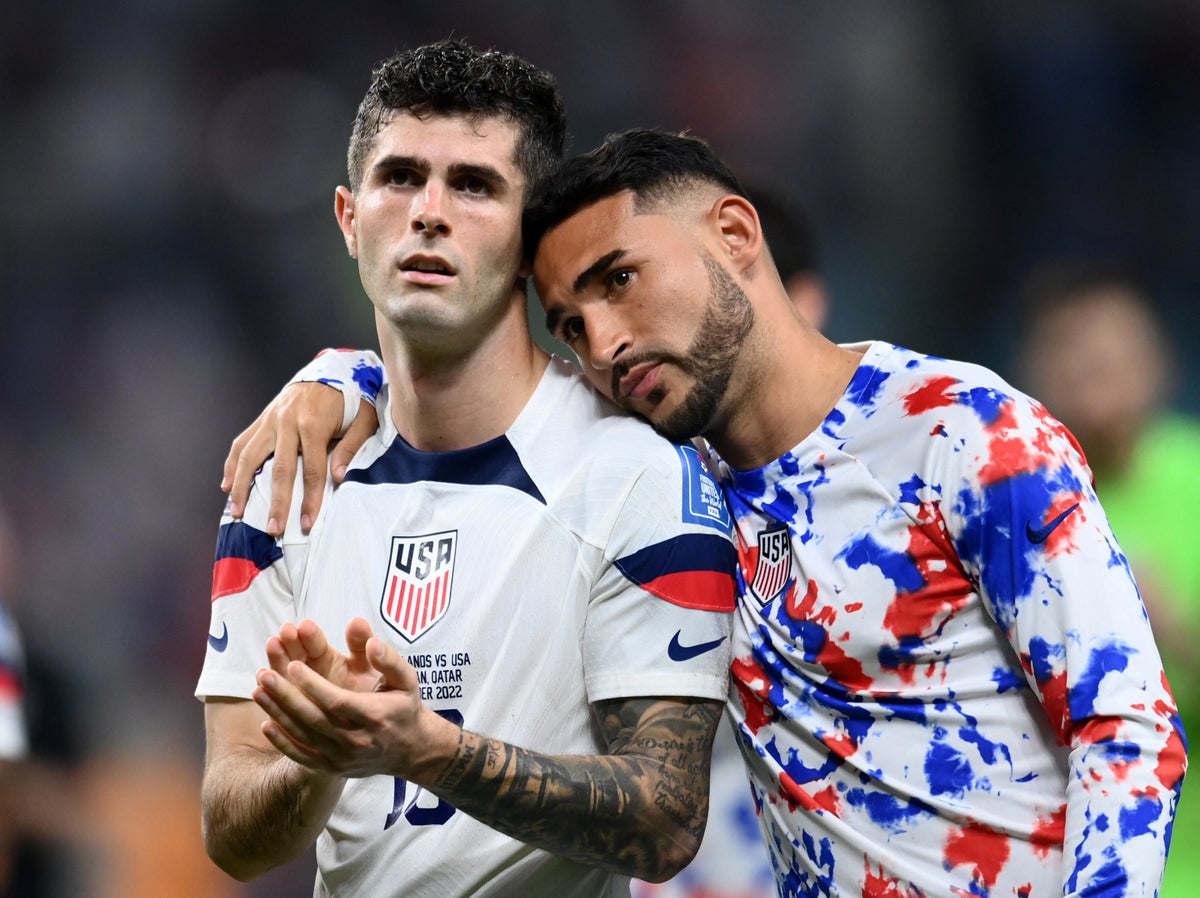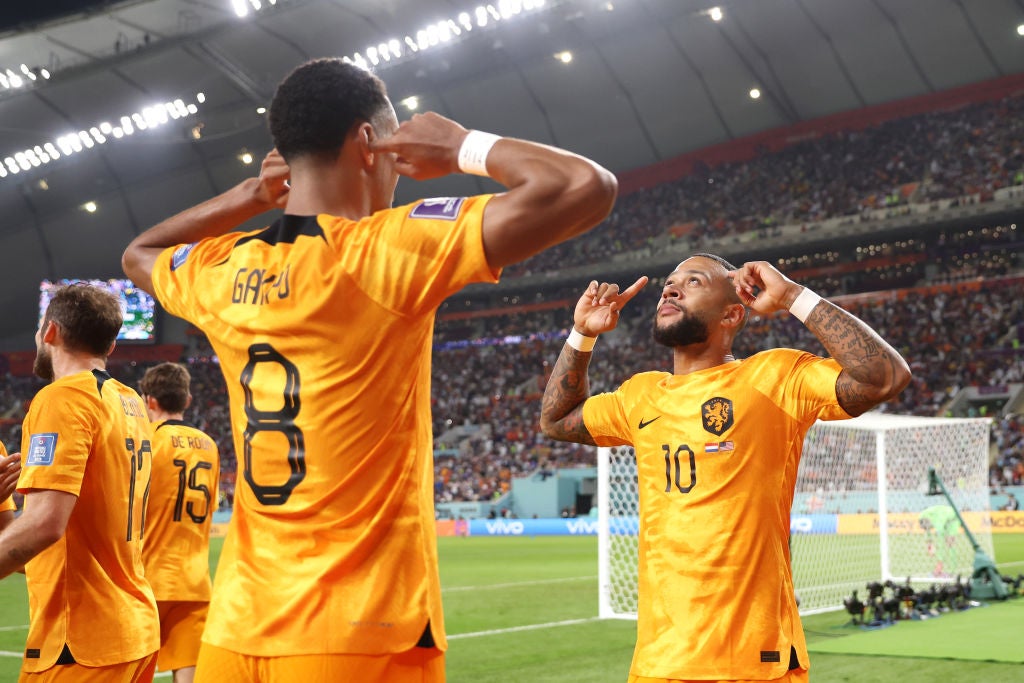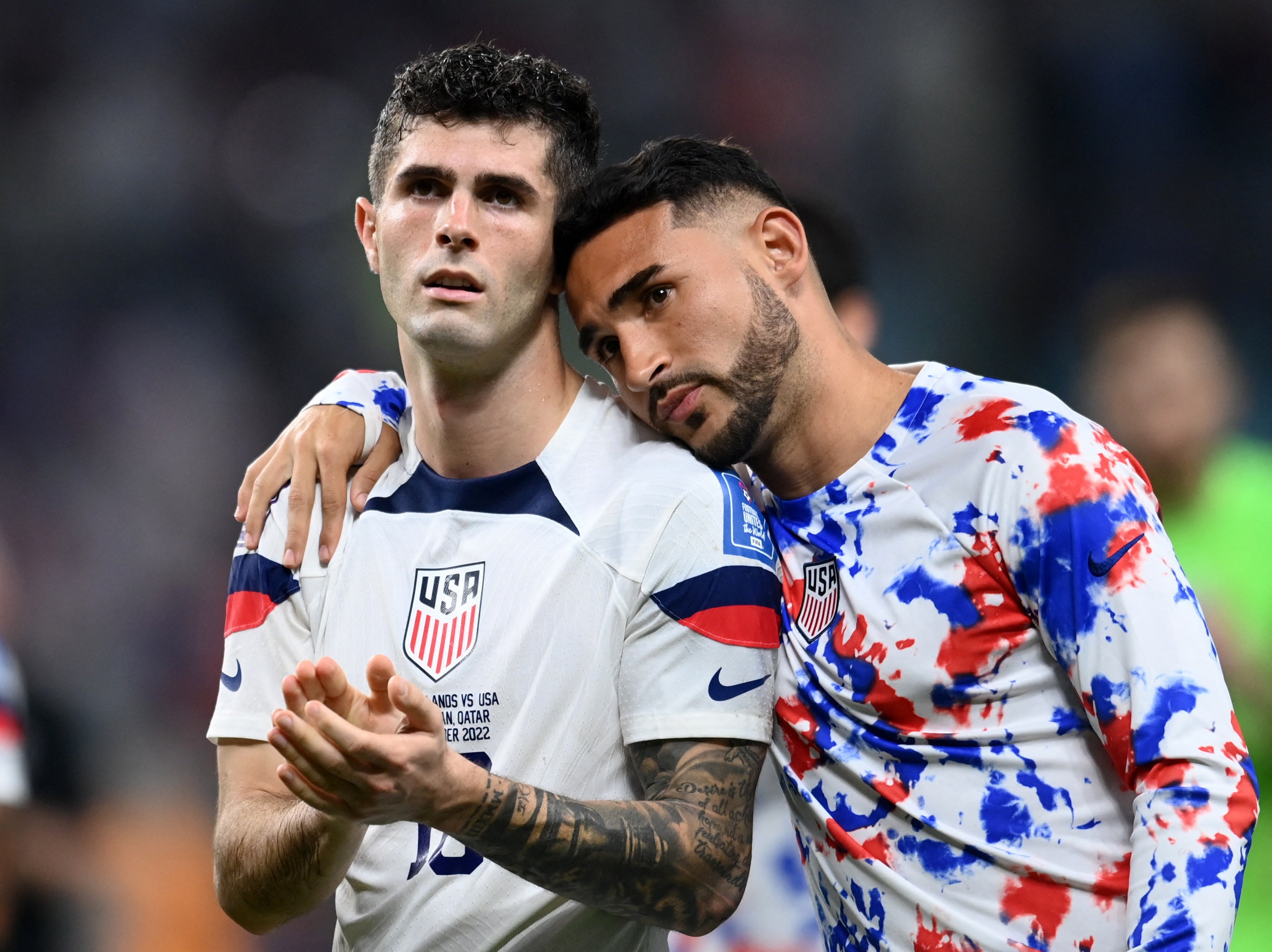
Gregg Berhalter could not be accused of a lack of ambition. The United States departed the World Cup at a familiar stage, the last 16 proving their last stop, as it did in 2014 and 2010. Maybe their manager’s sights were set only a second quarter-final appearance or simply proving a point to the global audience that the political, economic and cultural superpower could be a footballing force as well. Either way, he said: “We set out with a goal to show the rest of the world we can play soccer and we partially achieved that.”
But only partially. Defeat to the Netherlands was the old order, the European aristocracy, exerting their authority over the new. The World Cup as a whole has offered an illustration of what the United States can do, and where they still struggle. “I think we are a very difficult team to play because of the intensity we play at,” Berhalter said. “When you look at our team, it is a very clear identity of what we are trying to do.”
The United States have been pressing monsters, allying energy with industry. In the group stage, they were hard to play against and hard to beat. In the knockout rounds, they were out-passed and outclassed when the Netherlands scored a goal from a 20-pass move, outflanked and outthought.
“Can we win and perform against top teams?” Berhalter asked rhetorically. “I think today is a strange type of outcome when we performed really well and I think this group is close.”
That may have been a flattering interpretation: the Dutch were comfortable for much of the match, more clinical and more technical. The USA were not that close.
Berhalter’s team were all graft, not enough craft. The United States had the vast majority of possession but the Dutch were more precise when it mattered. The Americans made a host of runs, but the Netherlands had a playmaker. It is scarcely Berhalter’s fault that he does not have a passer of Frenkie de Jong’s calibre. Yet if the Barcelona player was an aesthete among the athletes in midfield, Berhalter can be faulted for other aspects of the Dutch superiority.
With his future uncertain, there is a question if he is good enough; he has overseen an improvement but he was outwitted by Louis van Gaal. It was a tactical dissection. “Team USA didn’t adjust or adapt and we based a tactical plan on that and that probably allowed us to win,” said the Dutchman, in an unwittingly damning comment.
Van Gaal identified twin areas to be exploited: the space behind Antonee Robinson and the area towards the edge of the penalty area when low balls were cut back from the flanks. It brought two first-half goals. A fightback was in vain.
“A tough one to swallow,” Berhalter said. “The guys put up everything we have but we came up short. The game is about moments.”
His side were found wanting in four. There was Christian Pulisic’s glaring second-minute miss, which may prey on his mind until 2026. Captain Tyler Adams lost Memphis Depay for the first goal, Daley Blind eluded Sergino Dest for the second and Antonee Robinson failed to track Denzel Dumfries for the third. The US had the joint best defensive record in the group stage, conceding only to a Gareth Bale penalty, but elite opponents unlocked them.

Adams has been the USA’s best player this tournament; along with Casemiro, he was the outstanding holding midfielder in the group stage. The captain was in tears at the end, just as Pulisic had to be consoled by Berhalter, his soccer dad outfit giving him the appearance of a caring parent.
Berhalter can seem a fatherly figure to an embryonic group with plenty of team spirit. He cited their youth, perhaps as part of a campaign to keep him on, and it was the youngest team anyone had named in a World Cup knockout game for 12 years and the United States are building for 2026; in that context, 2022, half-way between a tournament they failed to qualify for and one they host, looks a bridge to the future. “The American public should be optimistic,” Berhalter said.
The age profile offers hope: come 2026 and Weston McKennie and Robinson will still only be 28, Adams and Pulisic 27, Timothy Weah 26, Dest and Brenden Aaronsen 25, Yunus Musah and Giovanni Reyna just 23. They represent a core even if none is a goalkeeper, centre-back or genuine striker, and matches tend to be won in either penalty box.

Haji Wright’s goal was remarkable, defying physics and logic alike with a touch that was simultaneously awful and inexplicably inspired, but he scarcely resembles a top-quality centre forward. “We don’t have a Memphis Depay right now, who has scored in the Champions League and played for Barcelona,” Berhalter said. It showed: the United States only scored three goals, fewer than six teams who were eliminated in the group stages.
If that lack of a striker is the most obvious shortcoming, it may be a concern that the United States still need most of the types of players the teams who tend to populate the latter stages of tournaments tend to possess.
Arguably, they have never produced a world-class footballer and even if there is time for one of a young group to graduate to that level, it is a moot point if any will.
Showing the world they can really play entails getting further. If they will never get a better chance than with their best generation and on home soil in 2026, the United States leave Qatar with plenty still to do to make the rest of the planet sit up and take notice.







